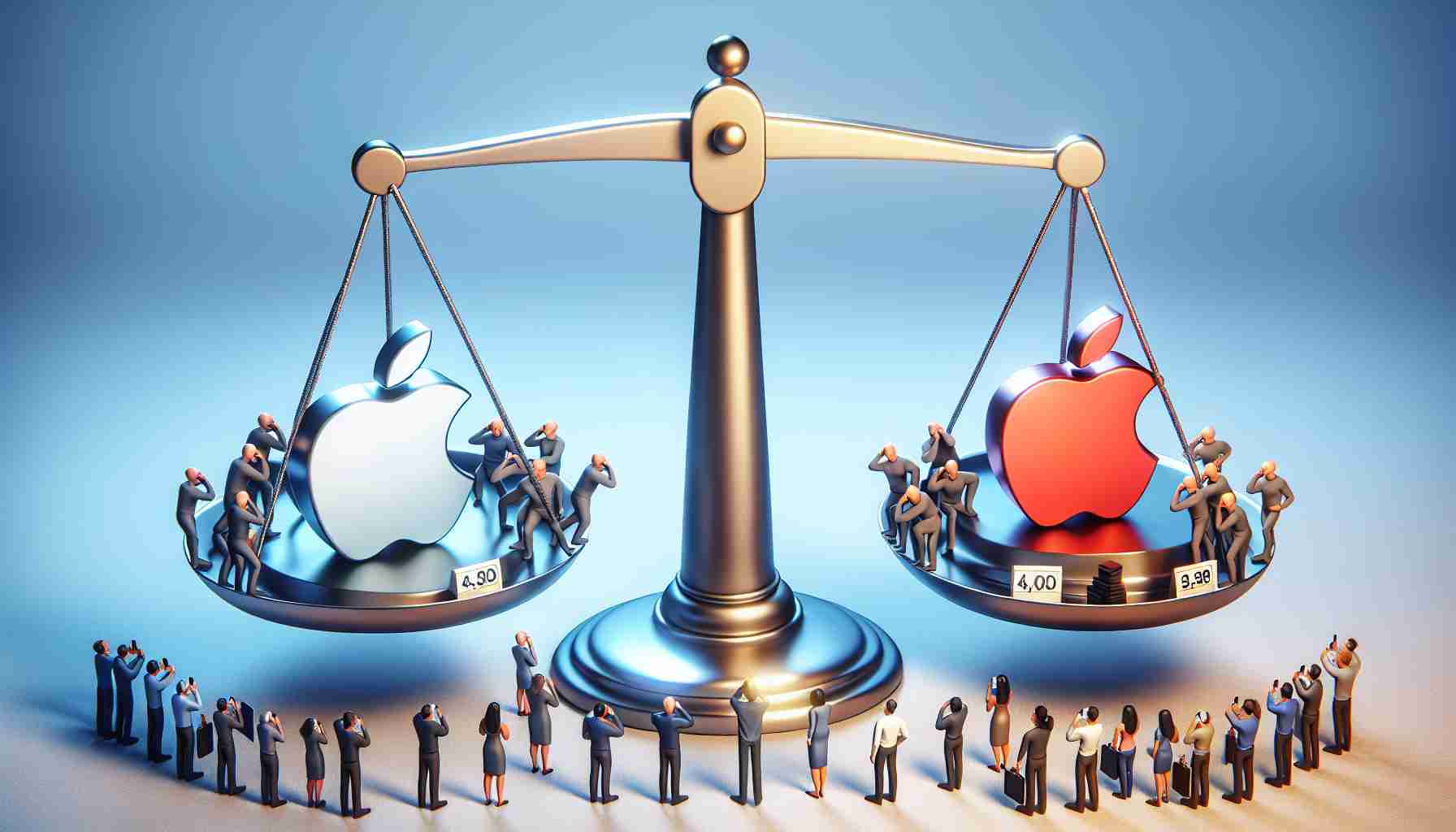Apple, the renowned tech giant, experienced a significant drop in smartphone shipments during the first quarter of 2024. Recent data from research firm IDC revealed that Apple’s shipments decreased by approximately 10%, primarily due to intensifying competition from Android smartphone manufacturers vying for the top position in the market.
The global smartphone market, however, witnessed an overall increase in shipments, rising by 7.8% to 289.4 million units from January to March. Samsung emerged as the leading phonemaker, claiming a 20.8% market share and surpassing Apple. This reversal of fortunes for Apple comes after a strong performance in the previous quarter, where they toppled Samsung as the world’s number one phone maker. With a market share of 17.3%, Apple currently holds the second position, as Chinese brands like Huawei continue to gain ground and expand their market share.
Another notable contender in the competitive landscape is Xiaomi, one of China’s leading smartphone manufacturers. During the first quarter, they secured the third position with a market share of 14.1%, showcasing their growing influence in the industry.
In contrast, Samsung experienced a positive trajectory, shipping over 60 million phones during the period. The launch of their latest flagship smartphone series, the Galaxy S24, contributed to an 8% increase in global sales compared to the previous year’s Galaxy S23 lineup.
Amidst these developments, Apple faced a 2.1% decline in smartphone shipments in China during the final quarter of 2023. This decline highlights the challenges that the company encounters in its third-largest market. Certain Chinese companies and government agencies have limited the use of Apple devices among employees, mirroring similar restrictions imposed by the U.S. government on Chinese apps on security grounds.
Looking ahead, Apple’s Worldwide Developers Conference (WWDC), scheduled for June, is anticipated to unveil updates to the software powering iPhones, iPads, and other Apple devices. Of particular interest to investors is the incorporation of artificial intelligence (AI) technology, an area in which Apple has provided limited information thus far. Furthermore, Apple lost its title as the world’s most valuable company to Microsoft earlier this year, adding another layer to the company’s evolving landscape.
The smartphone industry is a highly competitive market, with various players constantly vying for the top position. As seen in the article, Apple experienced a decline in smartphone shipments during the first quarter of 2024, largely due to intensified competition from Android smartphone manufacturers. This highlights the dynamic nature of the industry and the need for companies to continuously innovate and adapt to stay ahead.
According to market research firm IDC, the global smartphone market witnessed an overall increase in shipments during the same period, rising by 7.8% to 289.4 million units. Samsung, one of Apple’s main competitors, emerged as the leading phonemaker, surpassing Apple and claiming a 20.8% market share. This reversal of fortunes for Apple comes after a strong performance in the previous quarter, where they toppled Samsung from the number one position. With a market share of 17.3%, Apple currently holds the second position.
Chinese brands like Huawei and Xiaomi have also been gaining ground in the smartphone market, expanding their market share and challenging established players like Apple and Samsung. Xiaomi, in particular, secured the third position during the first quarter with a market share of 14.1%. This highlights the increasing influence of Chinese smartphone manufacturers in the global market.
While Apple faced a decline in smartphone shipments, Samsung experienced a positive trajectory, shipping over 60 million phones during the first quarter. This can be attributed to the successful launch of their latest flagship smartphone series, the Galaxy S24, which contributed to an 8% increase in sales compared to the previous year’s lineup.
In addition to competition, Apple also faced challenges in its third-largest market, China. The company witnessed a decline of 2.1% in smartphone shipments during the final quarter of 2023. Certain Chinese companies and government agencies have restricted the use of Apple devices among employees, similar to the restrictions imposed by the U.S. government on Chinese apps due to security concerns. This highlights the geopolitical issues that can impact companies operating in the smartphone industry.
Looking ahead, Apple’s Worldwide Developers Conference (WWDC) in June is expected to unveil updates to the software powering iPhones, iPads, and other Apple devices. Of particular interest is the incorporation of artificial intelligence (AI) technology, an area where Apple has provided limited information thus far. This move indicates Apple’s focus on enhancing user experiences and staying competitive in the market.
It is also worth mentioning that earlier this year, Apple lost its title as the world’s most valuable company to Microsoft. This further adds to the changing dynamics and evolving landscape of the tech industry.
For more information on the global smartphone market and industry forecasts, you can visit IDC or Statista. These sources provide comprehensive insights and data related to the industry, market forecasts, and trends.
The source of the article is from the blog kewauneecomet.com
